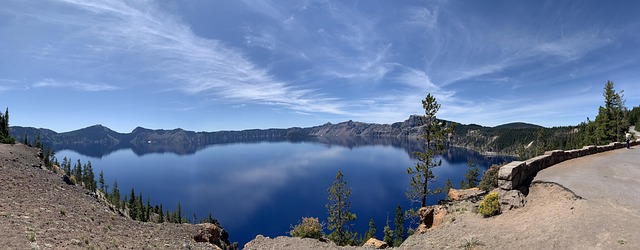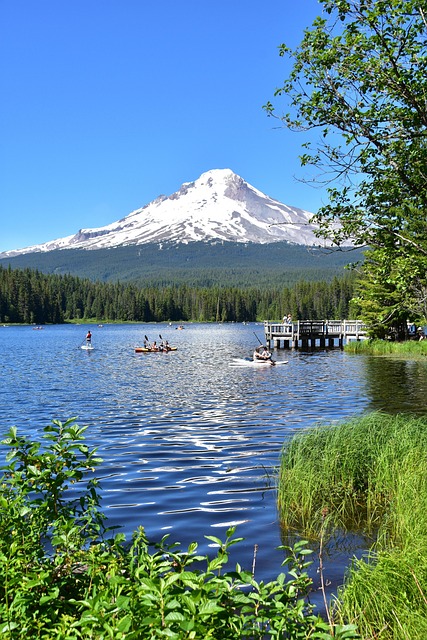Eugene, Oregon, stands out globally for its commitment to disabled transport, particularly through a comprehensive network of accessible bike paths. The city prioritizes inclusivity with dedicated infrastructure like raised crosswalks, tactile paving, and rest areas, making cycling safe and enjoyable for all abilities. Community initiatives and organizations drive these efforts, transforming Eugene into a leader in disability-friendly urban planning while enhancing residents' quality of life.
Eugene, Oregon, boasts an impressive network of accessible biking paths, making it a haven for cyclists, including those with disabilities. This article explores Eugene’s dedicated bike lanes and the accessibility features designed for disabled bikers. We delve into community initiatives promoting transportation equity and local organizations fostering inclusive cycling. Additionally, we look ahead to future plans aimed at enhancing disability access in this vibrant city, showcasing Eugene as a leader in accessible transport for all.
- Exploring Eugene's Dedicated Bike Lanes
- Accessibility Features for Disabled Bikers
- Community Initiatives in Transportation Equity
- Local Organizations Promoting Inclusive Cycling
- Future Plans for Enhanced Disability Access
Exploring Eugene's Dedicated Bike Lanes

Eugene, Oregon, stands out as a city committed to accessibility, including for those relying on disabled transport. The dedicated bike lanes throughout the city are a testament to this dedication. These well-designed pathways not only ensure safe cycling but also offer an enjoyable way for people of all abilities to navigate Eugene.
The existence of these bike lanes significantly enhances the quality of life for residents and visitors alike, promoting both health and environmental sustainability. In particular, disabled individuals can now participate in active transportation with ease, connecting them to community resources, workplaces, and leisure destinations. This attention to accessibility makes Eugene a model for urban planning focused on inclusive mobility.
Accessibility Features for Disabled Bikers

Eugene, Oregon, boasts an impressive network of biking paths that caters to all abilities, including those with disabilities. The city prioritizes inclusivity through dedicated accessibility features designed to facilitate disabled transport. These include raised crosswalks, tactile paving for visually impaired riders, and wheelchair-accessible ramps at various points along the trails.
Additional considerations have been made to ensure comfort and safety. Benches and rest areas are strategically placed for those who need breaks, while accessible parking spaces nearby provide convenience. The city’s commitment to these features showcases its dedication to making active transportation available and enjoyable for everyone, fostering an inclusive environment for disabled cyclists in Eugene Oregon.
Community Initiatives in Transportation Equity

Eugene, Oregon, has been a leader in promoting accessible transportation for all, including those with disabilities. Community initiatives have focused on creating an inclusive environment by developing and enhancing biking paths throughout the city. These efforts prioritize equal access to mobility, ensuring that individuals with diverse abilities can navigate Eugene’s scenic landscapes comfortably and safely.
Local organizations and residents have actively participated in these initiatives, advocating for improved infrastructure. The result is a growing network of bike lanes and paths that cater to disabled transport needs, making cycling more accessible than ever before in Eugene, Oregon. This commitment to transportation equity sets a standard for urban planning, demonstrating that inclusivity can thrive through collaborative community efforts.
Local Organizations Promoting Inclusive Cycling

In Eugene, Oregon, a vibrant community of organizations is dedicated to promoting inclusive cycling and ensuring that everyone, including those with disabilities, can enjoy the city’s extensive biking network. Local groups like the Lane County Cycling Coalition (LCCC) play a pivotal role in advocating for accessible transportation options. They collaborate with city planners and policymakers to improve bike infrastructure, making routes safer and more convenient for all riders.
These organizations also offer programs that provide training and resources for individuals with disabilities, empowering them to navigate the city by bike. Through adaptive biking workshops and accessibility audits, they identify and address barriers, fostering an environment where cycling is a viable mode of transport for everyone. Their efforts contribute to Eugene’s reputation as a forward-thinking city, embracing inclusive practices to enhance mobility and overall quality of life for its residents.
Future Plans for Enhanced Disability Access

The city of Eugene, Oregon, is committed to improving accessibility for individuals with disabilities, including those who rely on bicycles as their primary mode of transportation. Future plans include expanding and enhancing the existing network of bike paths to create a more inclusive environment for disabled commuters. These initiatives focus on removing physical barriers and providing dedicated infrastructure to ensure safety and ease of travel.
The goal is to integrate these improvements seamlessly into the city’s overall transportation system, making Eugene a leader in accessible cycling. By prioritizing accessibility, the city aims to encourage more people with disabilities to choose biking as a sustainable and healthy option for getting around, thereby promoting a more inclusive and livable community for all residents of Eugene, Oregon.
